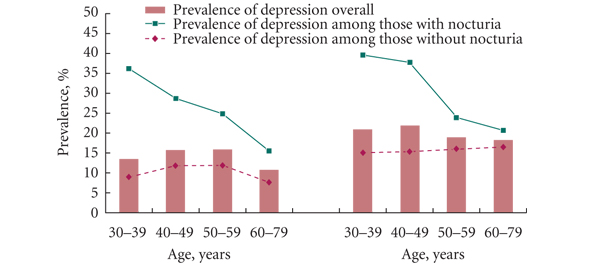The NERI Nocturia Advisory Conference 2012: focus on outcomes of therapy
The New England Research Institutes, Inc. (NERI) Nocturia Advisory Conference 2012: focus on outcomes of therapy
Jeffrey P. Weiss1,2, Jerry G. Blaivas1,2, Marco H. Blanker9, Donald L. Bliwise3, Roger R. Dmochowski4, Marcus Drake11, Catherine E. DuBeau5, Adonis Hijaz7, Raymond C. Rosen6, Philip E.V. Van Kerrebroeck10 and Alan J. Wein8
1Department of Urology, SUNY Downstate College of Medicine, Brooklyn, 2Weill Medical College of Cornell University, New York, NY, 3Emory University School of Medicine, Atlanta, GA, 4Department of Urologic Surgery, Vanderbilt University, Nashville, TN, 5Division of Geriatric Medicine, UMass Memorial Medical Center and UMass Medical School, Worcester, MA, 6New England Research Institutes, Watertown, MA, 7Urology Institute, University Hospitals Case Medical Center, Cleveland, OH, 8Division of Urology, Perelman School of Medicine at the University of Pennsylvania, Philadelphia, PA, 9Department of General Practice, University of Groningen, University Medical Center Groningen, Groningen, 10Department of Urology, Maastricht University Medical Center, Maastricht, The Netherlands, and 11University of Bristol, Bristol, UK
INTRODUCTION
Nocturia, awaking to void urine, is a common and sometimes bothersome symptom that may impose detrimental impacts on sleep-quality, mood, and overall health [1]. The multi-factorial aetiology of nocturia, coupled with the recent demonstration that this symptom is highly variable over time and often resolves spontaneously [2] , makes nocturia a challenging clinical entity. Although nocturia may have little health impact for some, for others it can be a highly bothersome, debilitating condition. Multiple studies have shown an association between nocturia and disturbed sleep, reduced well-being, and increased morbidity [3, 4, 5].
A consensus statement published in 2011 provided guidance to clinicians who are confronted with the wide range of clinical presentations of nocturia [1]. That paper focused primarily on a description of nocturia, its prevalence, its impact on health-related quality of life (QOL) and overall health, and an overview of available treatment options. The present paper extends and elaborates on the previous paper by examining the most recent research on diagnostic and treatment outcomes. Numerous papers have been published in the 2 years since the previous conference was organised, and the field, as a whole, has a large and dynamic research agenda. This paper summarises the findings resulting from a 2012 conference of key thought leaders in the field of nocturia who focused on updating outcome studies published since the previous conference was held.

